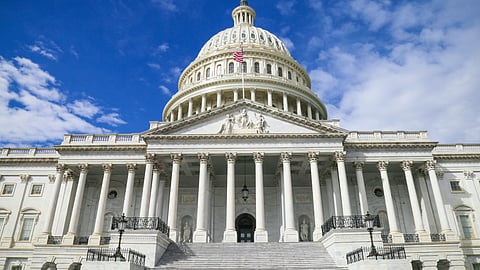US bill introduces startup visa, no green card cap on PhD holders
Entrepreneurs and STEM PhD holders might have a speedier pathway to a US green card, which now takes five to ten years to process in most cases.
On Feb. 4, the US House of Representatives passed the America COMPETES Act of 2022, which introduces a new visa classification for entrepreneurs and removes numerical limits on immigrant visas for graduates with PhD degrees in the science, technology, engineering and mathematics (STEM) field. The bill, mainly aimed to boost manufacturing and supply chains to combat the US dependency on China, is the House’s version of the US Innovation and Competition Act passed by the Senate in June 2021.
The Act introduces a new classification of ‘W’ nonimmigrant visas for entrepreneurs, their families and “essential foreign workers” — employees who hold an executive or managerial position.
The W-1 visa would be granted to individuals with at least a 10% stake in a startup along with $250,000 of qualifying investments from a US entity or $100,000 in government awards or grants in the 18 months preceding the date of the petition.
W-2 visa would be provided for staff considered essential to the growth and success of the startup. The W-3 visa would provide spouses and children of the W-1 and W-2 visa holders eligibility to hold work permits.
Individuals can adjust their visa to a green card after a year of having the ‘W’ visa and meeting certain conditions related to funding, turnover, job creation, and ownerships.
Foreign nationals who hold a doctoral degree in STEM fields will be exempted from immigrant visa numerical limits.
According to a 2018 study by the National Foundation for American Policy, immigrants founded or co-founded more than half of America’s billion-dollar companies.
Bobby Franklin, President of the National Venture Capital Association which represents more than 400 venture capitalists in the US, welcomed the passing of the Act, stating, “A startup visa has been an NVCA top priority for many years, and we are thrilled to see it advance out of the House.”
The bill now heads to the Senate to be reconciled with the Senate’s bipartisan version, before it can be passed into law by President Joe Biden. However, major differences exist between the two bills, including the immigration reforms of the new startup visa and removing the green card cap on STEM PhD holders that were not included in the Senate’s version of the bill.

